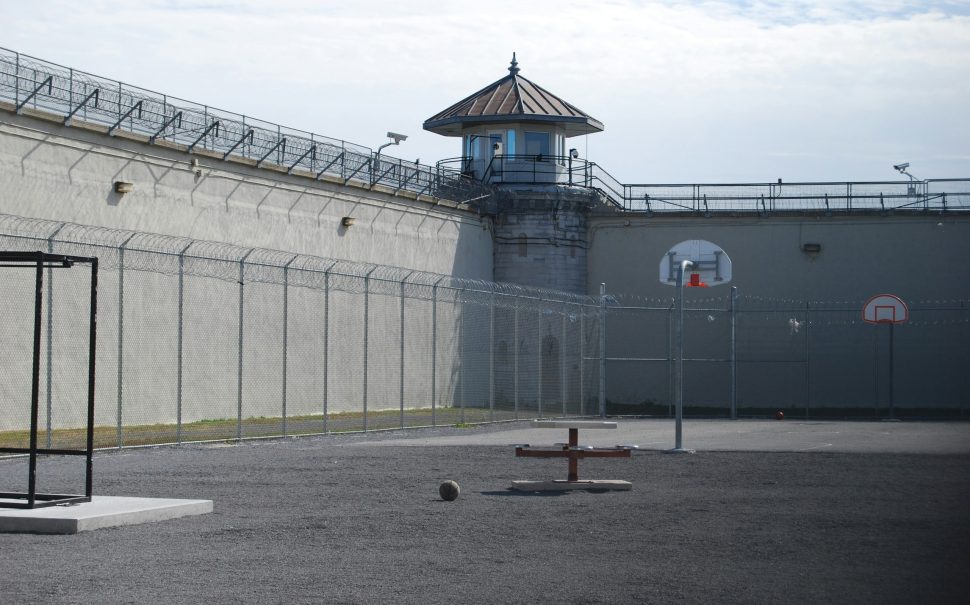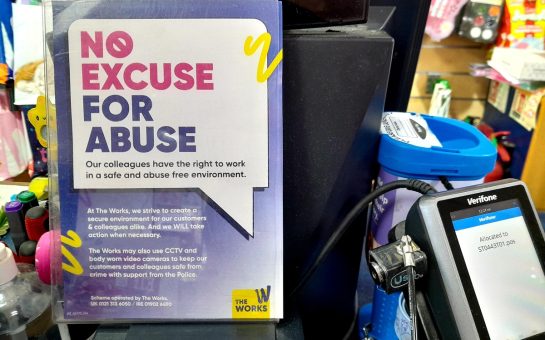Drones are being used to test stronger, synthetic substances on inmates — causing the prison drug crisis to reach ‘endemic levels’.
According to the Justice Committee, 39% of prisoners find it easy to acquire drugs, adding to the ‘prevailing culture of acceptance’.
The committee’s October report found that the increasing trade and use of illicit drugs in prisons has resulted in the prisoner drug addiction being much higher than in the general population.
In 2023-24, 30% of women and 23% of men in prisons reported having a drug issue.
Andy Slaughter, the chairman of the Justice Committee and the Labour MP for Hammersmith and Chiswick, spoke to the Londoners about this escalating threat to prisoner well-being.
Slaughter said: “The market in prison is much more lucrative than the market outside so you can see why more effort is put into getting drugs in.
“[Dealers] might get 100 times as much profit for the same quantity of drugs. That’s why that battle is going on.”
Between 2019 to 2023, there was a 770% increase in sightings of drones, capable of lifting ‘a moderate-sized person’, around prisons.
Tessa Munt MP, another member of the Justice Committee, explained that prisons do not have the technology to block drones around the perimeter of a prison.
Munt said: “It’s easy. In prisons, you’ve got a captive market, literally a captive market and drug dealers will go to any lengths to do what they do.”
The MP for Wells and Mendip Hills explained that dealers also use broken windows to smuggle drugs in.
Munt said: “If someone’s cell has a broken window with netting outside — vaguely similar to a tennis net and meant to stop items being thrown in or out — it isn’t difficult to throw something burning onto the netting and burn through it.
“My personal view is that we should be installing metal grids with each hole too small to allow drones through.”
The report concluded there are overwhelming ‘systemic failures’ to maintain physical barriers that prevent drugs from entering prisons.
According to the Justice Committee, ketamine is increasingly becoming the drug of choice and a growing challenge in prisons.
Synthetic opioids and cannabinols have also developed as a ‘highly dangerous new threat’ because they can be more potent than heroin and morphine.
According to the Justice’s Committee, synthetic opioids — which can be fatal in even small doses — are one of the fastest growing drug groups in prisons, with many inmates being coerced into using these unregulated substances as ‘guinea pigs’.
Munt said: “If anyone tells you any prison hasn’t got a drug problem, they are dreaming.”
Despite legislation to address the increased use of New Psychoactive Substances (NPS), like spice, some estimates suggest that 60% to 90% of prisoners use or have used them — with many trying spice for the first time in prison.
Slaughter said: “The dealers want their money. They will go to family, perhaps even vulnerable members of their family on the outside, and threaten them or threaten to harm the prisoner unless they come up with the money.
”Often there’s also cuckooing which is where [dealers] take over a property and use that for dealing on the outside.
“It’s a way of blackmailing and pressuring prisoners and that’s how the debts are paid. It’s extraordinarily lucrative.”
Between September and December 2023, 61% of post-release deaths — all within 14 days of release — were drug-related, with 20 occurring within a day of release.
Munt said: “You can’t rehabilitate somebody if we don’t have the ability to either prevent them from going into drug use, or help them get out of that situation.
“It’s absurd that people without a drug problem come into prison and leave with one. It’s mad, absolutely mad.”
According to the Justice Committee, 11% of men and 19% of women said they developed a problem with drugs, alcohol or non-prescribed medicines since arriving in prison.
With You is a drug, alcohol and mental health charity providing treatment and support to inmates in two prisons in Lincolnshire: HMP Lincoln and HMP North Sea Camp.
The charity’s national criminal justice lead, Karen Ratcliff, said their support for drug-dependent prisoners is individualised, allowing them to work with an inmate or ex-offender for anything from a month or for 10 years depending on their needs.
Ratcliff said: “We provide psychosocial and pharmacological interventions and we’re one of the only community providers that provide both by one team.
”We focus on changing people’s behaviours and providing clients with the tools to progress through their individual journey in the prison and then back out into the community.
“A really important thing we do as well is that we try to educate the prison staff and the people working within the prison environment around reducing stigma.”
The Justice Committee’s report found staff’s inconsistency in responding to drug-related medical emergencies unacceptable and recommended mandatory training for staff on recognising and responding to drug overdoses.
The report found that staff are not only exposed to violence and abuse but are directly at risk of serious medical harm from second-hand drug exposure.
Munt said: “And at the moment, it feels a bit like everyone’s a rabbit in the headlights.
“You have prison governors who don’t have the powers or the budget to be able to do what seems like incredibly logical, sensible, natural things to prevent drugs coming into their prisons.
“You’ve got the prison officers who are up against it and are understaffed. They’re brilliant, as are the senior leadership in prisons but they’re just trying to push water uphill.”
Between December 2022 and December 2024, 833 drug-related deaths were investigated by the Prisons and Probation Ombudsman.
Looking forward, Ratcliff said charities like With You need more funding so that the prison healthcare system can be less fragmented.
”This cohort of people are hugely stigmatised in every aspect of their lives,” she said.
“They’re stigmatised in prison because they’re on a drug dependency and they’re stigmatised in the community because they’ve been in prison.
“We need to treat addiction as healthcare.”
Featured image credit: Larry Farr via Unsplash





